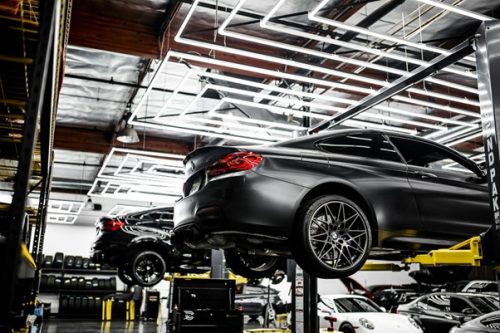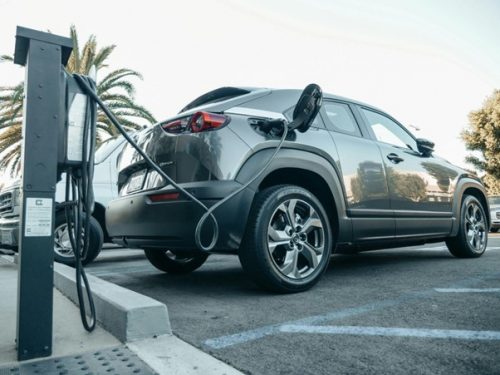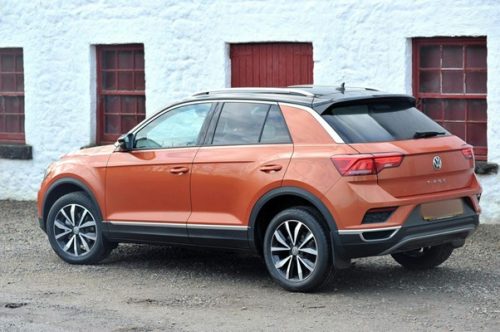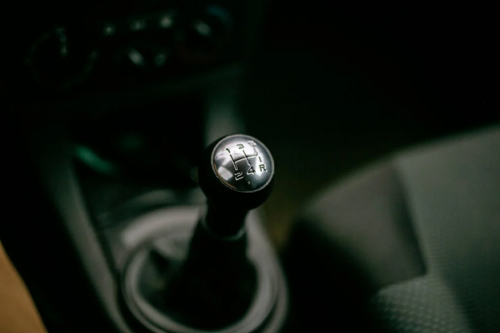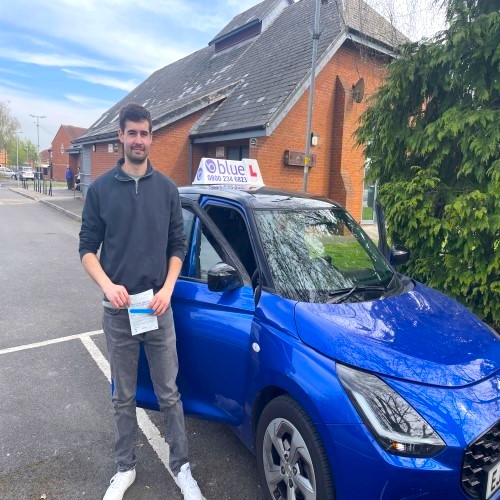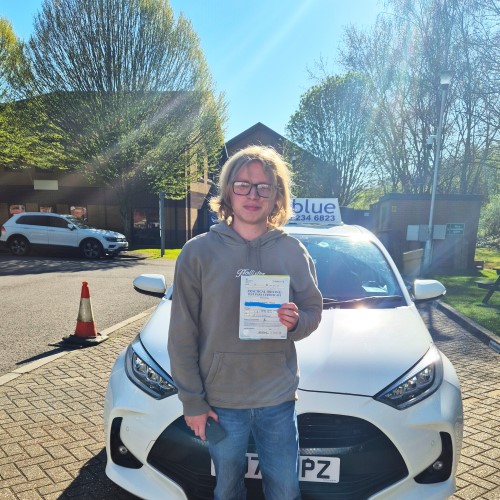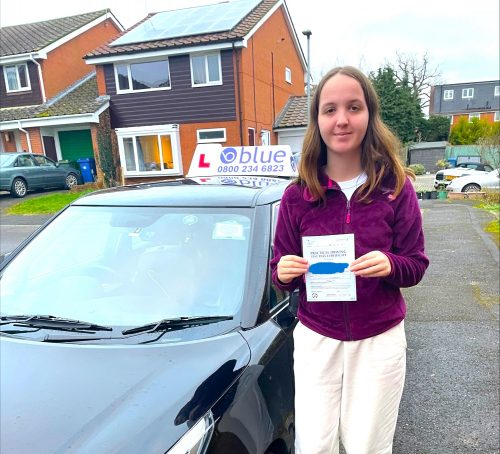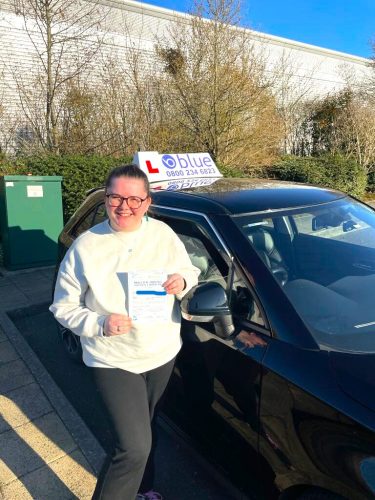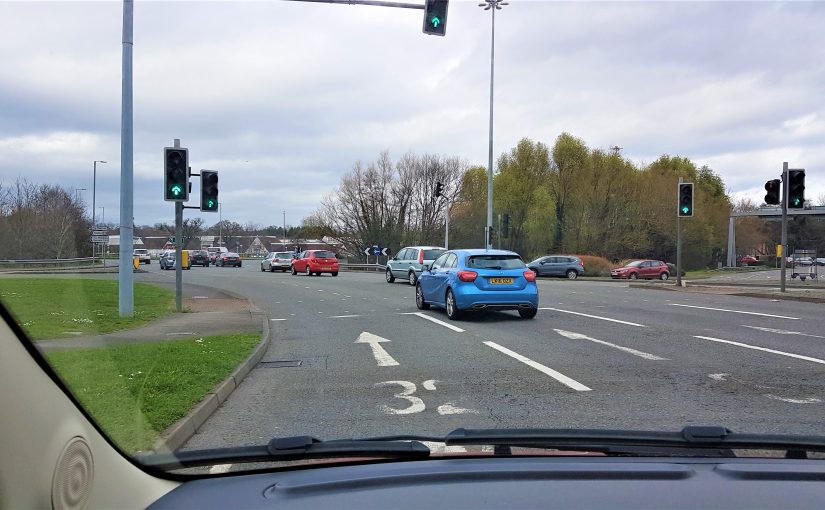
How Can New Drivers Stay Safe on the Road?
Posted in: Driving Tips, News.
GUEST ARTICLE
AccidentClaims.co.uk for Blue School of Motoring
How Can New Drivers Stay Safe on the Road?
Passing your driving test is a great feeling, gaining some independence and freedom. But up to now there’s always been an instructor or experienced driver alongside you to give you guidance and help you make decisions. If you got flustered and weren’t sure what to do, a calming voice was there to tell you.
When you get in a car on your own for the first time it is exciting, but also a bit nerve racking. You’ve been well trained and you know what to do, but it can take some time to have confidence in your ability and for all the things you’ve been taught to become automatic. You’ve learned to pass your test but it’s now that you really learn how to drive. So how do you stay safe on the road?
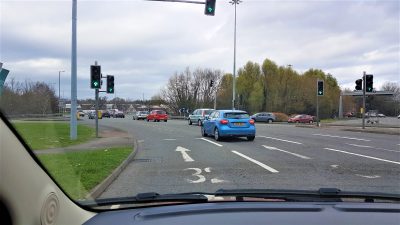
Common Causes of Road Accidents
To avoid accidents, it helps to know why they happen. You might think speeding, drink driving or using a mobile phone are the major culprits. However, a 2011 in-depth study by the Institute of Advanced Motorists (IAM) into fatal accidents shows some surprising results. The study is based on data collated by police on thousands of RTCs (Road Traffic Collisions) throughout the UK.
The number one cause of accidents is driver error, with the vast majority directly because of failing to look properly. Second in this category is loss of control, mainly because of taking a bend or other hazard too fast. Turning or manoeuvring badly and failing to judge another driver’s speed are other contributory factors in driver error.
The next main cause of fatalities is “injudicious action” which covers things like driving too fast for the conditions, exceeding the speed limit and failing to obey a stop or give-way sign.
Third on the list is poor behaviour or inexperience. Offences such as careless, reckless and aggressive driving, or just being in too much of a hurry contribute to this category. And this is also where newly qualified drivers cause a number of accidents by panicking, overreacting or simply making the wrong decision in an emergency.
The final main category is “impairment or distraction”. This includes drink or drug driving, using a mobile phone and being distracted by, for example, choosing music, talking to passengers or eating and drinking.
There are many other things which contribute to road accidents, ranging from being blinded by the sun to faulty vehicles.
Don’t Become a Statistic
Driving is a complex task and you need to give it your entire concentration. Don’t let anything in the car distract you, especially your mobile phone. You might want to stay in touch, but even using hands-free, although currently legal, can take your mind off the road. If you need to use your phone, pull over and turn the engine off. Never use earphones as you need to be able to hear warning signals (horns) and sirens. If you play music in the car, don’t have it too loud.
Always obey road signs, they are there for a reason. At junctions look carefully and watch what other drivers might be doing. Don’t assume that someone indicating is actually turning. Before pulling out, take an extra look for cyclists and motorbikes which are harder to see. Be cautious at traffic lights, don’t take it for granted that the junction will be clear when you’ve got a green light. Be extra careful when changing lanes and make sure you won’t come into conflict with another vehicle.
The speed limit is a maximum and, in poor conditions, you should drive slower. Even in good conditions, although you might feel capable of driving safely at speed, when something goes wrong it will happen quickly and the outcome can be fatal. On rural roads take bends carefully because you don’t know if there’s a hazard on the other side.
Try to ignore aggressive drivers and give them a wide berth. If you retaliate, the situation can get worse and could well result in an accident. Also, road rage incidents are all too common and can be extremely unpleasant.
Don’t drink and drive! Not only is it, thankfully, socially unacceptable, but you are also far more likely to have an accident and the consequences are life-changing.
Make sure your car is roadworthy – it’s your job! Check your tyre pressures and tread depth regularly. When necessary, top up fluid levels for oil, brakes, steering, etc. Have your brakes checked periodically. Keep your windows and mirrors clean.
Treat every other road user as an idiot and expect them to do the unexpected!
If You Are in an Accident
You can try to be the safest driver on the road, but there is always the possibility that another driver will cause a collision. The first time you are involved in a road accident can be a very stressful and frightening experience. The important thing is to try and stay calm – easy to say, but difficult to do.
Even if there are no injuries the police should be called. They will take statements and assess who was to blame, which you can use when you later make a claim. If you are able, you should get any details you can of the other parties involved; names, addresses, contact details, vehicle make, model and registration number and their insurance company. Take photos of the scene. If you do suffer an injury, a witness will often help with the details.
Where the accident is not your fault you may be able to make a car accident claim against the other driver. Consult a personal injury lawyer who will advise you on claiming car accident compensation. In case you are injured keep a record of visits to the hospital or doctor, transport costs and any other related expenses. If you make a successful claim you will be compensated for pain and suffering, medical costs, loss of earnings and any out-of-pocket expenses.
Don’t be put off by the statistics, but try to be the safest driver you can so that you don’t become one of them.
Tags: How Can New Drivers Stay Safe on the Road





